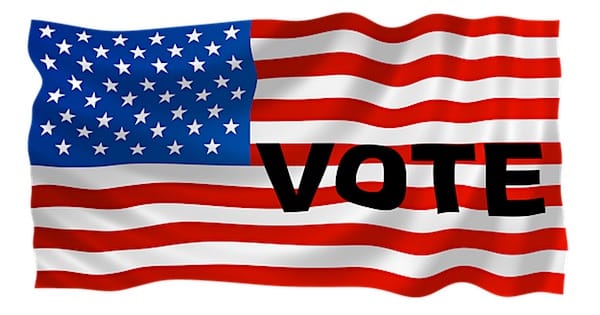(Image by Pete Linforth from Pixabay)
By Christopher Baecker
Real Clear Markets
“Fiscal Policy” used to be my favorite chapter to cover in my macro class. Then I started using the U.S. Debt Clock as a tool of instruction. What a bright and colorful reminder of the depressing status quo!
I felt compelled to punch it up on my own time after reading former democratic vice presidential nominee Joe Lieberman’s recount of his experience from the 2000 election.
TRENDING: Ferocious blowback forces Pelosi to cancel dinner party for Dems
Then as now, we are looking at the possibility of a protracted presidential electoral contest. Unlike now, Uncle Sam’s expenditures were just over 18% of our gross domestic product. Today, it’s double that, a fact we’ll revisit in a bit.
Incidentally, my micro class covered diseconomies of scale last week.
That’s when an enterprise starts incurring greater costs (in dollars and otherwise) to manage its inordinately large size. Many of us have had time-consuming, sometimes unpleasant customer service experiences with such companies, and are therefore familiar with the demand side effects.
Some of us have worked for a company that, due to growth, necessarily had to hire more folks. This is a good thing when a firm simply needs more engineers, construction or assembly line workers to produce more products. Perhaps additional financial whizzes are needed to take on more 401K or investment customers.
It can however, reach a point where the organization becomes unwieldy. This is particularly so when you also need to bring on compliance specialists to deal with the myriad, multi-jurisdictional government regulations that pertain to labor relations, product/resource markets, legal issues, etc.
And that’s to say nothing about avoiding running afoul of the I.R.S.
The more layers of red tape a business has to navigate, the slower the go, the higher the cost, and the more it begets internal red tape.
At over two million employees, a figure that far outpaces all companies not named WalMart or Amazon, the federal government would seem like the epitome of such an entity. Nevertheless, I don’t discuss it.
We keep our focus on a couple private market participants at a time. That better equips students to deal with a world they already know includes many, many more economic actors.
In this scenario, government’s role is relegated to establishing a few basic rules, and a court system to resolve conflicts between individuals and firms. Protecting citizens’ natural rights, and securing our borders and shores are its only other legitimate functions.
Obviously, that’s not our reality, and I can’t help but wonder if it hasn’t contributed in some way to our current predicament.
From rushing to accommodate more people who can’t be bothered to vote in person, to shifting some of that responsibility to an overextended U.S. Postal Service that regularly bleeds taxpayer funding, to employing voting software with a possible “technical design flaw.”
“But Chris, the debt clock reflects spending, most of which goes to Medicare, Medicaid, Social Security, defense and welfare (corporate and individual). How is that related to the election?”
If any area merits particular federal scrutiny, one would think it would be ensuring the integrity and accuracy of national elections.
Alas, we’re too busy inflating health care/insurance and education prices, restricting investment/savings choices, chipping away at the motivation to work and develop good habits, picking winners and losers in international commerce, papering over government-shutdown fallout, etc. All based on the assumption that Americans and American companies can’t take care of themselves. At best they’re votes of no-confidence; at worst, blatant power-grabs.
No one with a rudimentary grasp of the power of incentives, competition and the profit motive expects a government to be all that effective or efficient of a marketplace participant. The more it strays from its few and well-defined roles in society, the more likely the outcome from those functions will suffer.
Currently, we’re waiting on final tallies from a few more states than we were in 2000, which ended when Al Gore waited until almost two weeks into December to concede. With republicans rightfully seeking to ensure their legality as much as possible, I wouldn’t expect a definitive conclusion for at least a month.
In the meantime, here’s something to ponder: if we’re going to expect more of government, maybe we should demand less from it.




